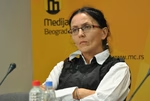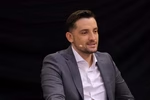Ex ICTY investigator: Criticism by the IRMCT officials was strict, but came late

The criticism of regional countries which the President and the Chief Prosecutor of a Hague-based international war crimes court included in their reports to the UN on Tuesday was needed, but came too late, former investigator at the ICTY, Nevenka Tromp, told N1 on Wednesday.
International Residual Mechanism for Criminal Tribunals (IRMCT) President Theodor Meron and Chief Prosecutor Serge Brammertz submitted their reports to the United Nations on Tuesday, criticising regional countries for their continuous glorifying of war criminals and their denial of the crimes.
The IRMCT is the international court tasked with finishing the job of the International Criminal Tribunal for the Former Yugoslavia (ICTY), which closed its doors last year. Meron was a judge at the ICTY, while Brammertz was the Chief Prosecutor there.
Their reports also said that cooperation between the countries on war crimes cases is lacking and that it is at its lowest level.
The messages were strict, “but I think that they are late with their criticism,” Tromp said. “I think that they would have done a better job if they would have concentrated on their legal possibilities from 2000 and onward, instead of criticising how the region is behaving.”
The Tribunal has made many mistakes throughout the years, Tromp said, suggesting that it should first assess the job it has been doing and understand where it failed, and then begin criticising others.
She went on to criticise the court.
“First comes the indictment and the verdict for the perpetrators. Second - administrative justice for the victims, and third, showing with the legal procedures that whoever committed a crime will end up in court,” she said, explaining that this is called “the process of prevention.”
She named war crimes that took place after the ICTY was established in 1993, saying that “it is weird” that the Srebrenica massacre, which both the International Court of Justice and the ICTY later ruled was an act of genocide, could have taken place in 1995.
“How is it possible that the Tribunal did not send an important and strong message to the perpetrators, including Milosevic,” she said, referring to the late former President of Serbia and Yugoslavia, Slobodan Milosevic, who also stood trial at the ICTY.
“The truth that the Hague established was limited. It was the forensic truth, which is a product of two sides which lay out their arguments - and those can be reduced and manipulated with,” she said.
Cooperation between states is essential for the Hague-based court and its indictments, she said.
Tromp also commented on the requests filed by former Bosnian Serb leader Radovan Karadzic and former Bosnian Serb General Ratko Mladic.
Karadzic is appealing a 40-year jail sentence the ICTY handed down against him for crimes against humanity, including genocide, committed in Bosnia during the 1992-1995 war.
Mladic has been sentenced for the same crimes to life in prison, and he is also appealing his sentence.
Karadzic recently asked to be released pending his final ruling, while Mladic asked to be treated in Russia for his deteriorating health condition.
The IRMCT has a policy of granting such requests, and convicts are permitted to temporarily leave if, for example, a loved one dies, Tromp said.
But she also said that she does not understand the logic of Karadzic’s appeal, since “everybody knows that the verdict will not be reduced, but can only be increased.”
She called his request “absurd.”
Kakvo je tvoje mišljenje o ovome?
Učestvuj u diskusiji ili pročitaj komentare





 Srbija
Srbija
 Hrvatska
Hrvatska
 Slovenija
Slovenija


























































